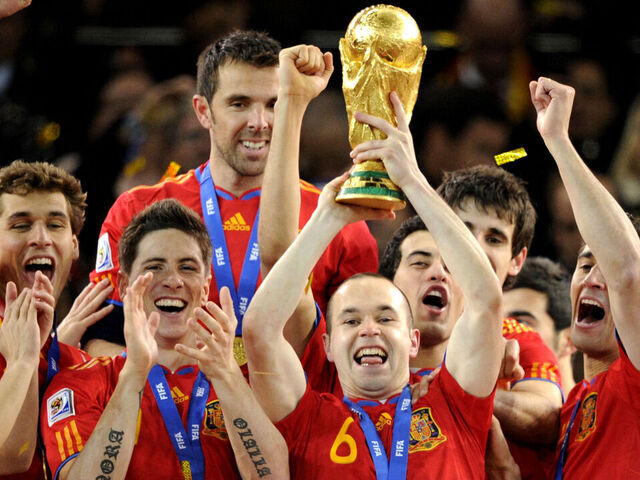
Andres Iniesta, who secured Spain’s 2010 World Cup victory with his extra-time goal, appeared to signal his retirement at the age of 40 on Monday.
In a video titled “The Game Continues,” posted on X, the former Barcelona and Spain midfielder became emotional when asked about his relationship with football.
El Juego Continúa ❤️⚽️ 8️⃣🔟2️⃣4️⃣ pic.twitter.com/YLrDOfxVCB
— Andrés Iniesta (@andresiniesta8) October 7, 2024
During his 16-year tenure at Barcelona, Iniesta won more than 30 trophies, playing a key role in a dominant midfield trio alongside Xavi and Sergio Busquets. The three were pivotal during Barcelona’s most successful period.
Iniesta left Barcelona after the 2017-18 season and played six seasons in Japan with Vissel Kobe before moving to the United Arab Emirates, where he seems to have concluded his professional career.
Known for his exceptional passing ability, Iniesta also had a knack for scoring crucial goals, such as his last-minute equalizer against Chelsea in the 2009 Champions League semifinals and his World Cup-winning goal in 2010. His 116th-minute strike against the Netherlands earned Spain its first-ever World Cup title, sandwiched between two European Championship wins for the national team.
Iniesta was also recognized as the best player of Euro 2012.
Originally from a small town in Albacete, Iniesta joined Barcelona’s La Masia academy at age 12, just a few years before Lionel Messi’s arrival. He played a vital role in the club’s success, which included nine La Liga titles, six Copa del Rey titles, and four Champions League victories.
In over 900 professional appearances, Iniesta earned the respect of opponents and fans alike. Remarkably, he was never shown a red card in his career. One notable moment came in 2010 when Espanyol fans gave him a standing ovation during a 5-1 victory for Barcelona in the Catalan derby.
Despite his illustrious career, Iniesta never won the Ballon d’Or, finishing second to Messi in 2010 and third in 2012. In 2018, France Football, which awards the prize, issued an apology for overlooking Iniesta.
“Forgive us, Andres,” wrote Pascal Ferre, the magazine’s director. “He wasn’t just a player. He was the player. His sacrifices for the team cost him greater individual recognition. His absence from the Ballon d’Or winners list is particularly painful.”
